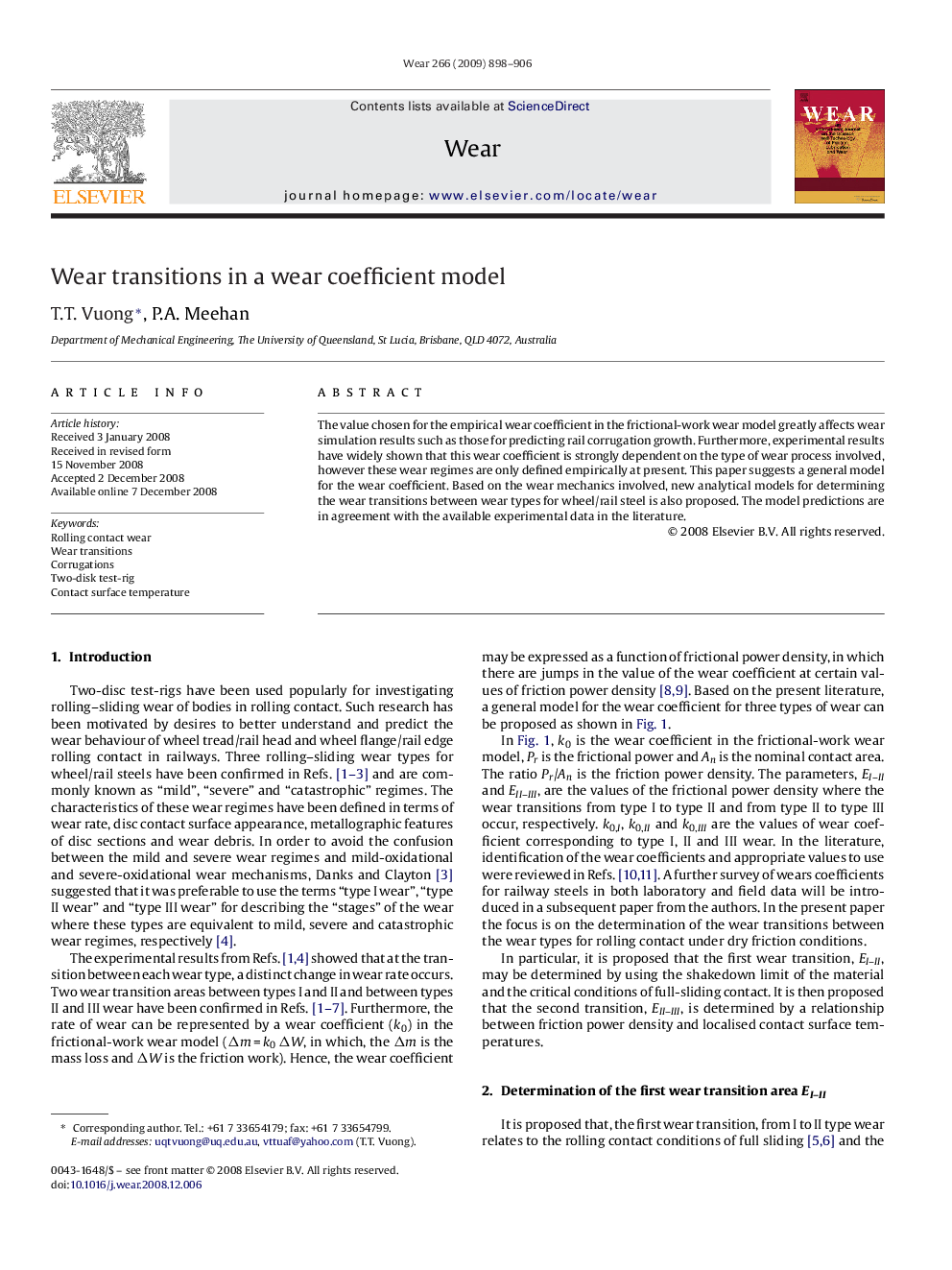| Article ID | Journal | Published Year | Pages | File Type |
|---|---|---|---|---|
| 619612 | Wear | 2009 | 9 Pages |
Abstract
The value chosen for the empirical wear coefficient in the frictional-work wear model greatly affects wear simulation results such as those for predicting rail corrugation growth. Furthermore, experimental results have widely shown that this wear coefficient is strongly dependent on the type of wear process involved, however these wear regimes are only defined empirically at present. This paper suggests a general model for the wear coefficient. Based on the wear mechanics involved, new analytical models for determining the wear transitions between wear types for wheel/rail steel is also proposed. The model predictions are in agreement with the available experimental data in the literature.
Keywords
Related Topics
Physical Sciences and Engineering
Chemical Engineering
Colloid and Surface Chemistry
Authors
T.T. Vuong, P.A. Meehan,
